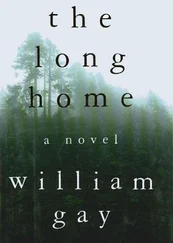William Shaw - She's leaving home
Здесь есть возможность читать онлайн «William Shaw - She's leaving home» весь текст электронной книги совершенно бесплатно (целиком полную версию без сокращений). В некоторых случаях можно слушать аудио, скачать через торрент в формате fb2 и присутствует краткое содержание. Год выпуска: 2014, Издательство: Little, Brown and Company, Жанр: Полицейский детектив, на английском языке. Описание произведения, (предисловие) а так же отзывы посетителей доступны на портале библиотеки ЛибКат.
- Название:She's leaving home
- Автор:
- Издательство:Little, Brown and Company
- Жанр:
- Год:2014
- ISBN:нет данных
- Рейтинг книги:4 / 5. Голосов: 1
-
Избранное:Добавить в избранное
- Отзывы:
-
Ваша оценка:
- 80
- 1
- 2
- 3
- 4
- 5
She's leaving home: краткое содержание, описание и аннотация
Предлагаем к чтению аннотацию, описание, краткое содержание или предисловие (зависит от того, что написал сам автор книги «She's leaving home»). Если вы не нашли необходимую информацию о книге — напишите в комментариях, мы постараемся отыскать её.
She's leaving home — читать онлайн бесплатно полную книгу (весь текст) целиком
Ниже представлен текст книги, разбитый по страницам. Система сохранения места последней прочитанной страницы, позволяет с удобством читать онлайн бесплатно книгу «She's leaving home», без необходимости каждый раз заново искать на чём Вы остановились. Поставьте закладку, и сможете в любой момент перейти на страницу, на которой закончили чтение.
Интервал:
Закладка:
Breen looked at his watch. It was almost three in the morning. They still had at least three hours to drive.
“Are you going to be long?”
“I keep thinking I’ve finished and then I start again.”
Breen peered into the blackness around them and wished they had contacted the Suffolk police before they’d left civilization.
Eventually Carmichael rejoined them; his eyes looked sunken, his hair was matted against his forehead. He slumped into the driver’s seat, put the car in gear, then took it back into neutral again. “Not sure I can drive,” he said.
“Good grief, man. Is that you? You smell to heaven,” said the professor. “What did you do to yourself?”
Breen turned to the professor: “Right. You drive,” he said. After the fall that morning, he wasn’t up to a long session behind the wheel.
“You must be ruddy joking,” said Briggs.
“I wish I ruddy was,” replied Breen.
In the darkness, the professor was a nervous driver. He paused at every corner or junction; if any vehicles approached from the opposite direction, headlights shining into his eyes, he slowed to a virtual standstill. As dawn approached, the roads became fuller; huge lorries packed with beets loomed within feet of the rear bumper. Their presence slowed Briggs down even more, sending the truck drivers into a rage of impatience. One blared his horn until Briggs found a lane he could pull over into.
Carmichael lay on the backseat, groaning occasionally. By the time they stopped at a small all-night petrol station somewhere in Suffolk, a thin line of deep blue light was starting to form to the east.
The attendant was asleep in a chair inside. Breen banged on the window to wake him. He emerged, rubbing his eyes, dressed in a long brown cotton coat with Esso written on the chest pocket. “Fill it up,” said Breen. “Oh. And you got a key for the toilets?”
Breen passed the key to Carmichael, who tottered out to the back of the station clutching it.
“Is he going to be all right?” asked Breen, as the attendant put the nozzle into the tank.
“How would I know?” answered Briggs.
“Well, you’re a doctor, aren’t you?”
The professor didn’t answer.
When Carmichael returned he was looking a little less white, though he still got into the backseat. He sat up straight this time in the corner and lit a cigarette. “Drive,” he said.
“I’d rather you didn’t smoke,” said the professor.
“I’d rather you just shut up,” said Carmichael.
Thirty-three
The graying light revealed flat, dull land. The roads were straight and the hedges were even. Small pockets of fog loomed in fields filled with flocks of lapwings and geese.
And then the sea was ahead of them: a gray line beyond the dark fields. They pulled up a hundred yards away from the house, a small white two-storey cottage at the end of a thin strip of village lying along the coast. The road lay between the houses and a shingle beach; a few black-hulled fishing boats were pulled up on the stones alongside tar-painted sheds.
“That’s her car,” said Briggs. A new Hillman Minx, parked a few yards away from the house.
He opened the driver’s door and got out.
“Are they still there?”
“I’m not sure.” He walked hesitantly towards the house. The air blowing off the North Sea was bitterly cold. His long gray hair flew about his face.
“Shut the door. It’s freezing,” complained Carmichael.
Breen leaned over the driver seat and pulled the door to.
Briggs returned to the car, opened it again and leaned in, brushing his hair back. “I think they’re in there. The curtains are drawn but there’s a light on. Shall I knock?”
“No,” said Breen.
“Why not?”
“Get in and shut the fucking door,” said Carmichael.
Briggs sat back in the driver’s seat. “There’s no need for language like that.”
“Sit down,” said Breen, “and don’t do anything.”
“I need to know if she’s OK.”
Breen picked up the radio and searched the frequencies but he could hear nothing. There was a red phone booth about fifty yards past the house. “Stay here.”
“I want to die,” said Carmichael.
After he’d phoned the local police, he returned to the car and waited. Wind hummed in the telephone wires. Clouds scudded low across the sky.
They sat and waited. “My God, you stink,” said Briggs, winding down the window.
“I can’t help it.”
“That’s enough,” Breen hissed at Briggs. “Keep your voice down.”
After around twenty minutes, a police car approached quietly from behind them, lights off.
“You the ones from London?” whispered the senior officer, a thin-faced sergeant with pointed sideburns. He leaned down into the open window of the car. A couple of gangly constables got out and stood behind him.
“Yes.”
“You’ve got a warrant?”
“No time,” said Breen.
The sun was peering over the horizon, turning the white cottages along the seafront a rich red. Seagulls whirled in the graying sky above; more sat on the beach, pointing beak-first into the sharp wind.
“How many in there?” asked the policeman.
“Possibly two men and two women. One is a police officer who may be being held against her will.”
The sergeant nodded thoughtfully. “I got two men,” he said. “We could send for more, only there aren’t too many of us on duty in these parts this time of day.”
Breen considered for a second. “Two should be OK,” he said.
Carmichael leaned forward. “Is there a toilet round here?” he called through the open window.
“Public toilet down there,” said the sergeant.
Carmichael opened the door and stood, bent from the waist, holding his stomach.
“It’ll be closed now, course,” the sergeant said.
“Of course,” said Carmichael. He got back into the backseat and lay down again.
“He OK?” said the policeman.
“He’s sick.”
The officer nodded again. “So just two of you then?”
“One,” said Breen. “He’s a civilian.” He nodded towards Briggs, who scowled back. “Shall we go then?”
Breen got out of the car and walked towards the house, aware of the sound of each footfall. There were two sash windows on the ground floor, one on either side of a front door over which straggled a weedy, blackspot-covered rose. The garden had a large abstract granite sculpture in it that looked a little like a Henry Moore; old pieces of driftwood were strewn around the gravel that surrounded it.
Between the Briggses’ cottage and its neighbor was a small, thin alleyway. The mast of a sailing boat lay down the length of it, varnish peeling. Breen walked as silently as he could along it; behind the house he found a small concrete yard, full of old paint cans, a rusting bicycle and a pile of firewood. A low flint wall separated the yard from the pathway. Behind, another line of houses backed on to them.
Breen tiptoed back round to where the sergeant was standing.
“Two men at the back?” the sergeant whispered. Breen nodded.
A brown-feathered gull sat on the chimney above them, eyeing the two policemen as they moved down the alleyway to cover the rear of the house.
Breen went up to the door, looked over to the sergeant, who nodded; then he knocked loudly on the door with his fist. “Open up,” he shouted. “Police.”
Nothing.
“Sam? I know you’re in there. Open up.”
There was a clattering sound; someone moving behind the door. “Who is this?”
“It’s me, Sam. Cathal Breen. Open up.”
“Mr. Breen?”
“Yes.”
“I am glad it is you, at least.” It was Mr. Ezeoke’s voice. He sounded tired.
Читать дальшеИнтервал:
Закладка:
Похожие книги на «She's leaving home»
Представляем Вашему вниманию похожие книги на «She's leaving home» списком для выбора. Мы отобрали схожую по названию и смыслу литературу в надежде предоставить читателям больше вариантов отыскать новые, интересные, ещё непрочитанные произведения.
Обсуждение, отзывы о книге «She's leaving home» и просто собственные мнения читателей. Оставьте ваши комментарии, напишите, что Вы думаете о произведении, его смысле или главных героях. Укажите что конкретно понравилось, а что нет, и почему Вы так считаете.












